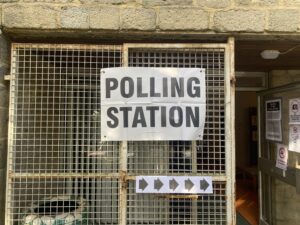Women face multiple barriers in local government
 A cross-party commission into the challenges faced by women in local government published its final report last week. Lauren Lucas assesses the evidence.
A cross-party commission into the challenges faced by women in local government published its final report last week. Lauren Lucas assesses the evidence.
Next year marks the centenary of the representation of the people act, which gave votes to some women for the first time. But nearly 100 years on, we are still struggling to get to a position of equality when it comes to women’s political representation.
The proportion of women in parliament has improved steadily (from a low base), up 10 percentage points in the last 10 years. By contrast, in local government politics this figure has flatlined at around a third of all councillors. Only 17 percent of council leaders and none of the six metro mayors are women. At this rate of progress, it will be 48 years before we achieve a local political class that represents the gender balance of its community in English county councils.
Why is this? The Local Government Information Unit (LGIU) has launched a report with the Fawcett Society that looks into these challenges and proposes some solutions. Does Local Government Work for Women? is the result of a year-long, cross party commission led by Dame Margaret Hodge and Gillian Keegan MP and drawing on evidence from hundreds of councillors across England and Wales.
The commission has found that women face multiple barriers to entering and progressing in local government.
‘Sexism is commonplace in local government with almost
four in ten female councillors having experienced sexist comments’
Firstly, there is a lack of flexibility in the role of councillor which works against women. Just four per cent of local councils in England have a formal maternity, paternity or parental leave policy in place for councillors. Help with the costs of childcare is patchy, with some councils not offering any support at all. It is not possible for local councils to use technology for councillors to attend meetings remotely, which creates additional barriers for women, particularly those with caring responsibilities.
Secondly, there are significant cultural barriers. Sexism is commonplace in local government with almost four in ten female councillors having experienced sexist comments from within their own party, and a third from their council colleagues. Women also reported finding it difficult to access informal networks where decision making may take place.
Thirdly, there is an issue with incumbency and lack of ‘churn’ in councillor roles. Eighty per cent of council seats go to incumbents at each election, making it very difficult for women and minority groups to break through. Research suggests men tend to remain in their roles for longer – of those councillors serving for 20 years or more, three in four are men.
Fourthly, there are barriers to senior political leadership. Women comprise 30 per cent of cabinet members overall – but many of these are in councils where there already is a woman leader. Nine councils still have all-male cabinets. Just one in seven finance or economic development roles (which, rightly or wrongly are often regarded as a typical route to the leader role) are held by women.
It is not an entirely negative picture of course. The national picture masks plenty of examples of good practice where individual authorities have made significant progress in achieving a more representative council. There are many inspiring female councillors and leaders who offer fantastic role-models for other women entering politics.
Drawing on existing work and evidence from many sources including interviews with some of these leaders, this report makes a wide range of recommendations. Just a few of them include:
- Targets for women’s political representation
- Maternity, paternity and parental leave entitlements for councillors
- Legalising remote attendance at council meetings, including voting rights
- More powerful standards committees and clearer standards and training
- Term limits for councillors
- Requirements for gender balanced cabinets and formal shadowing opportunities through the creation of ‘deputy cabinet member’ roles
Our next challenge is to help share best practice and help authorities to build better pathways into politics for local women. We will be looking to work with the Fawcett Society to set up regional networks to promote what works and share good ideas. Watch this space.
There are many reasons to celebrate next year’s centenary. We hope that this report will help us to keep the issue of women in politics firmly on the agenda and support councils to achieve a more representative political gender balance. They will be the richer for it.















